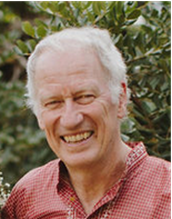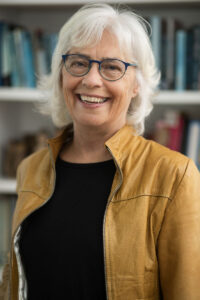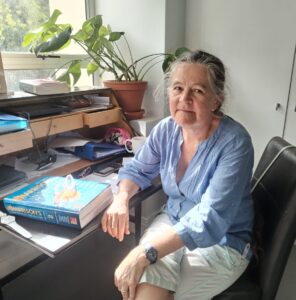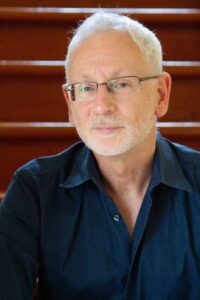Article Summary by Dawn Garisch, Janet Giddy, Giles Griffin and Steve Reid
From the beginning of recorded history, people in diverse cultures have embraced the idea that creative expression, including visual art, stories, dance and music, contributes to healing.
In recent times the therapeutic benefit of expressive writing has been well researched in the global north, but not in the global south. This is a significant gap because potentially healing interventions need to be investigated in different contexts, particularly where trauma, limited resources and a need to build a caring and compassionate society exist.
A recently published paper analysed the findings of a study among a diverse group of South Africans who were members of a writing group, the Life Righting Collective. Medical students at the University of Cape Town interviewed 20 members of the collective as part of a medical humanities study module.
We were co-authors of the paper. The research team included medical practitioners, medical students and academics with interests in mental health and medical humanities. Two authors also facilitate Life Righting Collective life writing courses.
Most participants reported improvements in overall wellness and mental health as a result of these writing courses, in line with other research findings which show that creative writing can promote healthier choices as well as improve relationships, mental health and work prospects.
The research findings indicate that the courses can be a useful, non-medical, cost-efficient method to improve psychological well-being.
Listen to the authors discuss the article:
Read the full article on the Medical Humanities journal website.
 Prof Steve Reid is a family physician with a background in rural medicine, having worked and run a district hospital in KwaZulu-Natal for 10 years together with his wife, Dr Janet Giddy. He is an advocate for rural health in South Africa, and as such is involved in medical education and human resources for health. He took up the post of Glaxo-Wellcome Chair of Primary Health Care at the University of Cape Town in 2010 and is developing this role to support medical and health science graduates to become more relevant and appropriately skilled in Africa. As a musician, he is also interested in the medical humanities and the role of the arts in medicine. His inaugural lecture in 2011 was titled “The Music of Health for All”, and he is involved in developing the role of the arts and social sciences in health care through the Medical Humanities within the African context.
Prof Steve Reid is a family physician with a background in rural medicine, having worked and run a district hospital in KwaZulu-Natal for 10 years together with his wife, Dr Janet Giddy. He is an advocate for rural health in South Africa, and as such is involved in medical education and human resources for health. He took up the post of Glaxo-Wellcome Chair of Primary Health Care at the University of Cape Town in 2010 and is developing this role to support medical and health science graduates to become more relevant and appropriately skilled in Africa. As a musician, he is also interested in the medical humanities and the role of the arts in medicine. His inaugural lecture in 2011 was titled “The Music of Health for All”, and he is involved in developing the role of the arts and social sciences in health care through the Medical Humanities within the African context.
 Dawn Garisch is an award-winning author, medical doctor, creative facilitator, and founding member of the NPO the Life Righting Collective. She has had seven novels, two collections of poetry, a non-fiction work, a short story collection and a memoir published. She has also written for the stage, theatre and film. Her own experience of how regular creative practice improved her mental and physical wellbeing led her to write Eloquent Body (Modjaji, 2012) and to participate in the medical humanities movement in South Africa. She teaches creative writing as a resource for facilitating mental health and community building. Dance and singing are her second favourite art forms, and she performs in a musical duo called Further Ado.
Dawn Garisch is an award-winning author, medical doctor, creative facilitator, and founding member of the NPO the Life Righting Collective. She has had seven novels, two collections of poetry, a non-fiction work, a short story collection and a memoir published. She has also written for the stage, theatre and film. Her own experience of how regular creative practice improved her mental and physical wellbeing led her to write Eloquent Body (Modjaji, 2012) and to participate in the medical humanities movement in South Africa. She teaches creative writing as a resource for facilitating mental health and community building. Dance and singing are her second favourite art forms, and she performs in a musical duo called Further Ado.
 Janet Giddy is a Family Physician with an MPH degree, and has experience in rural medicine, primary health care, HIV and TB care, maternal & child health and the education of nurses, doctors and medical students. She has management experience and has been involved in a variety of research studies in the field of HIV, TB, PMTCT, and reproductive health. Her interest in medical humanities has evolved alongside her clinical work and currently includes a collaborative project with historians writing the history of McCord Hospital. She has four children and two grandsons.
Janet Giddy is a Family Physician with an MPH degree, and has experience in rural medicine, primary health care, HIV and TB care, maternal & child health and the education of nurses, doctors and medical students. She has management experience and has been involved in a variety of research studies in the field of HIV, TB, PMTCT, and reproductive health. Her interest in medical humanities has evolved alongside her clinical work and currently includes a collaborative project with historians writing the history of McCord Hospital. She has four children and two grandsons.
 Giles Griffin is a writer, researcher, writing facilitator and marketing strategist with 35 years’ global experience across a wide range of projects. Previously linked to an LGBT-focused NGO, he co-published two research studies on LGBT mental health: Who Says Being Gay is UnAfrican? and Divided in Ourselves: LGBT Capetonians speak about themselves. He also co-published a range of non-fiction books focused on living with HIV under the Openly Positive imprint. He currently works with an NGO called the Life Righting Collective (LRC), where he contributed to and helped co-published an anthology of life writing: This Is How It Is.
Giles Griffin is a writer, researcher, writing facilitator and marketing strategist with 35 years’ global experience across a wide range of projects. Previously linked to an LGBT-focused NGO, he co-published two research studies on LGBT mental health: Who Says Being Gay is UnAfrican? and Divided in Ourselves: LGBT Capetonians speak about themselves. He also co-published a range of non-fiction books focused on living with HIV under the Openly Positive imprint. He currently works with an NGO called the Life Righting Collective (LRC), where he contributed to and helped co-published an anthology of life writing: This Is How It Is.